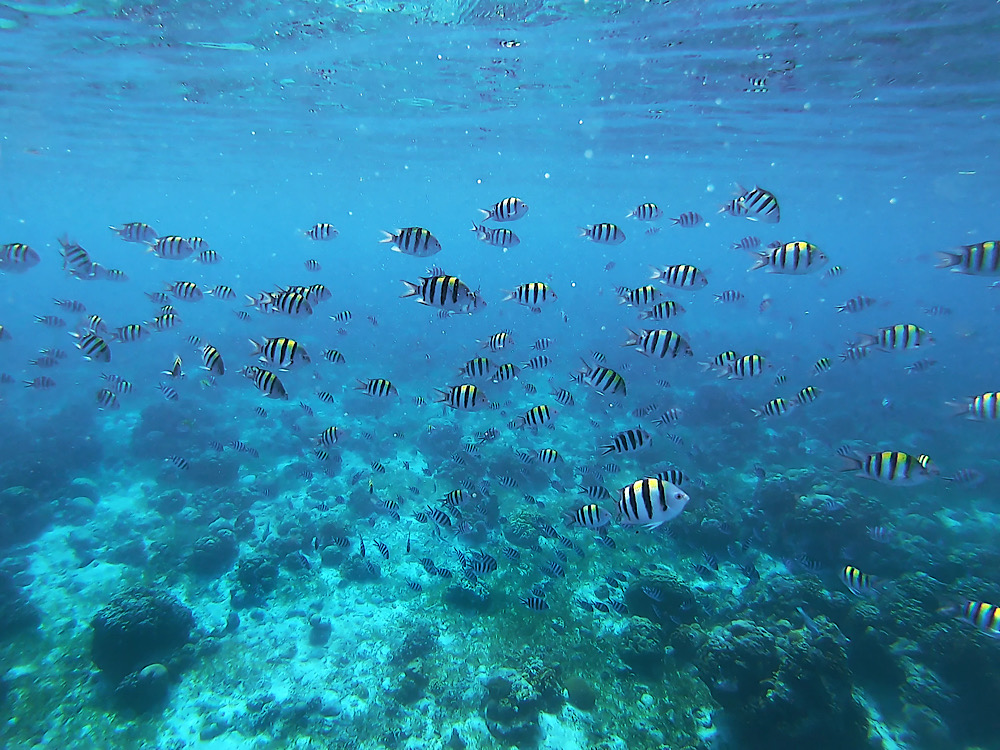Manila against Beijing over devastated coral reef
The Philippines plans to go before a yet-to-be-named international tribunal seeking damages against Chinese vessels operating in the Philippine section of the disputed South China Sea China’s aggressive policy is blamed. Beijing rejects the accusations; instead, it points the finger at Japan over its release of contaminated waters from the Fukushima nuclear plant.
Manila (AsiaNews) – The Philippines might file a case against China at a yet-to-be-named international tribunal over alleged large-scale coral reef destruction in the disputed South China Sea.
This week the Philippine Coast Guard released a video following underwater inspections of two areas, Iroquois Reef and Sabina Shoal, which the Philippines claims as its own, showing "serious damage" to the marine ecosystem, a situation linked to China’s aggressive claims in the sea that disregard treaties and the common good.
According to the Philippine military and local experts, dead corals were cleaned and crushed before being dumped into the seabed in an area claimed by Manila where Chinese fishing boats had been spotted in recent months.
Experts from the University of the Philippines plan to study the damaged corals to ascertain if reclamation activities were responsible for the environmental degradation.
Philippine Justice Secretary Jesus Crispin Remulla said the government had a “lot of evidence" of Chinese activities that negatively impact the area's ecology and maritime ecosystem, enough to blame Beijing for the devastation.
“With or without the territorial dispute, the destruction of the environment is a sin against humanity,” Remulla said. This is why, “it’s a very good case to file on behalf of the Philippines and the sake of humanity itself.”
The Chinese government reacted immediately rejecting any responsibility in the matter and accusing instead the Philippine official of "spreading disinformation".
In an attempt to shift attention away, the Chinese embassy in the Philippines issued a statement that read: “Oceans are indeed the lifeblood of our planet. So stop the release of contaminated nuclear water from Fukushima”.
This follows a pattern that China has used before, namely accuse others to hide its own actions; in this case, Japan, for releasing contaminated waters from the Fukushima nuclear plant into the sea.
For Philippine Defence Minister Gilberto Teodoro, foreign entities might have harvested coral to conduct island-building work, but none of this has been proven, including the Chinese ships' link to the coral reef devastation.
Japan's ambassador to the Philippines Kazuhiko Koshikawa also waded into the controversy, expressing concern over mass coral harvesting.
“Our oceans are the lifeblood of our planet, and coral reefs are its colourful heartbeats. Let’s preserve and protect these vital ecosystems for generations to come,” he wrote on X.
In view of the situation, the Philippines’ National Security Council (NSC) is planning marine scientific research in areas that were reportedly damaged by Chinese vessels.
“[What] we need to do is to increase maritime patrols in the area and have a more extensive marine research [programme] by the scientific community to determine the exact damage to the environment,” NSC Assistant Director General Jonathan Malaya told Rappler.
The NSC, he said, has already worked with the University of the Philippines Marine Science Institute (UPMSI) to promote research into the current situation, and plans an expedition that should begin shortly.
The Council’s cooperation with the UPMSI is extensive, most recently in 2021 when Philippines scientists embarked on a marine scientific research expedition funded by the NSC. This included a survey of Rozul Reef in the West Philippine Sea.
At the time, the UPMSI reported that, “the surveyed area had a reef ecosystem, with corals, benthic animals, fishes, seaweeds, and other marine organisms.”
12/02/2016 15:14
28/01/2019 13:27







.png)










